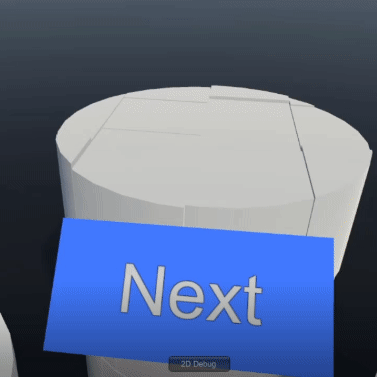Carousel: Improving the Accuracy of Virtual Reality Assessments for Inspection Training Tasks

Abstract
Training simulations in virtual reality (VR) have become a focal point of both research and development due to allowing users to familiarize themselves with procedures and tasks without needing physical objects to interact with or needing to be physically present. However, the increasing popularity of VR training paradigms raises the question: Are VR-based training assessments accurate? Many VR training programs, particularly those focused on inspection tasks, employ simple pass or fail assessments. However, these types of assessments do not necessarily reflect the user’s knowledge.
Type
Publication
28th ACM Symposium on Virtual Reality Software and Technology (VRST)